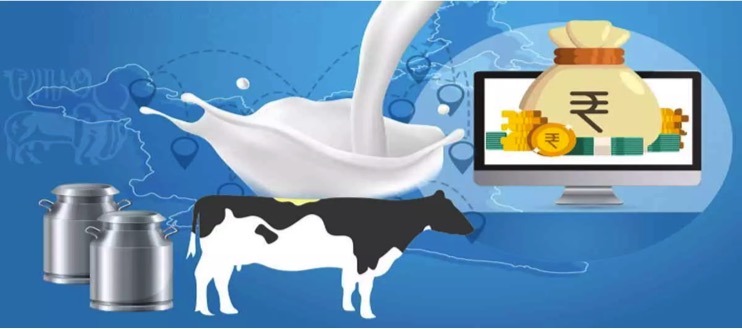The National Programme for Dairy Development (NPDD) has proved to be one of the few central sector schemes, in which the allocated amount has been spent in the third year of its five-year life. Also Read – India to retain fastest growing tag in 2024 too
The Department of Animal Husbandry & Dairying (DAHD) under the central government had allocated Rs1,790 crore for the NPDD for the period from 2021-22 fiscal to 2025-26 financial year. Expenditure on the NPDD schemes, however, has already exceeded the allocated amount, official sources told Bizz Buzz.
The NPDD has two components. Component-A is focused on the creation and strengthening of infrastructure for quality milk testing equipment and primary chilling facilities.
Component-B, called ‘Dairying through Co-operatives,’ aims to increase sales of milk and milk products, upgrade dairy processing facilities and marketing infrastructure, and enhance the capacity of producer-owned institutions.
Under Component-A of the scheme, 195 projects in 30 States and Union Territories (UTs) have been approved with the total outlay of Rs3,311.1 crore, including the Centre’s share of Rs2,479.06 crore. A total amount of Rs1,824.6 crore has been released to States for the implementation of these projects against which Rs1,429.62 crore has already been utilized, the sources said.
Under Component-B of the scheme, 22 projects in eight States have been approved with a total outlay of Rs1,130.63 crore. A total amount of Rs84.02 crore has been released to the National Dairy Development Board for the implementation of the projects.
Almost 16,800 dairy co-operative societies have been organized and revived, 30,066 automatic milk collection units installed, and 82 dairy plants strengthened with the creation of 24 lakh litres per day additional and new milk processing capacity under the NPDD. At the apex level of the NPDD, there is a Central Project Steering Committee (CPSC), headed by Animal Husbandry & Dairying Secretary, which provides policy and strategic support to the project. It monitors the progress of approved projects, considers annual action plans, and gives policy directions. It has the authority to re-appropriate component-wise fund requirements in approved programmes, change the eligibility conditions and other terms and conditions of the agreements.
Source : Bizzbuzz JAn 1st 2023

